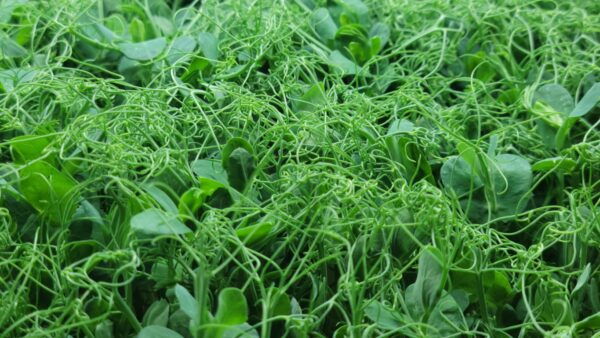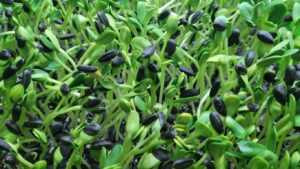Pea microgreens, like other microgreens, are nutrient-dense and provide a concentrated source of various vitamins, minerals, and phytonutrients. The specific nutrient content can vary based on factors such as growing conditions, variety, and maturity at harvest. Here are some common nutrients found in pea microgreens:
- Vitamins:
- Vitamin A: Important for vision, immune function, and skin health.
- Vitamin C: An antioxidant that supports the immune system and helps in collagen formation.
- Vitamin K: Essential for blood clotting and bone health.
- Minerals:
- Iron: Important for oxygen transport in the blood.
- Calcium: Essential for bone health.
- Magnesium: Involved in various biochemical processes in the body.
- Phosphorus: Essential for bone and teeth formation.
- Potassium: Helps regulate blood pressure and fluid balance.
- Phytonutrients:
- Chlorophyll: A green pigment with antioxidant properties.
- Carotenoids: Precursors to vitamin A and have antioxidant properties.
- Flavonoids: Plant compounds with potential health benefits.
- Protein:
- Pea microgreens, like other legume microgreens, are a good source of plant-based protein.
- Fiber:
- Dietary fiber, which is important for digestive health.
- Folate (Vitamin B9):
- Essential for DNA synthesis and cell growth.
It’s important to note that while microgreens are nutrient-rich, they are typically consumed in small quantities as part of salads, garnishes, or smoothies. Including a variety of nutrient-dense foods in your diet is essential for overall health, and microgreens can be a tasty and nutritious addition. If you have specific dietary concerns or health conditions, it’s always a good idea to consult with a healthcare professional or a registered dietitian for personalized advice.








